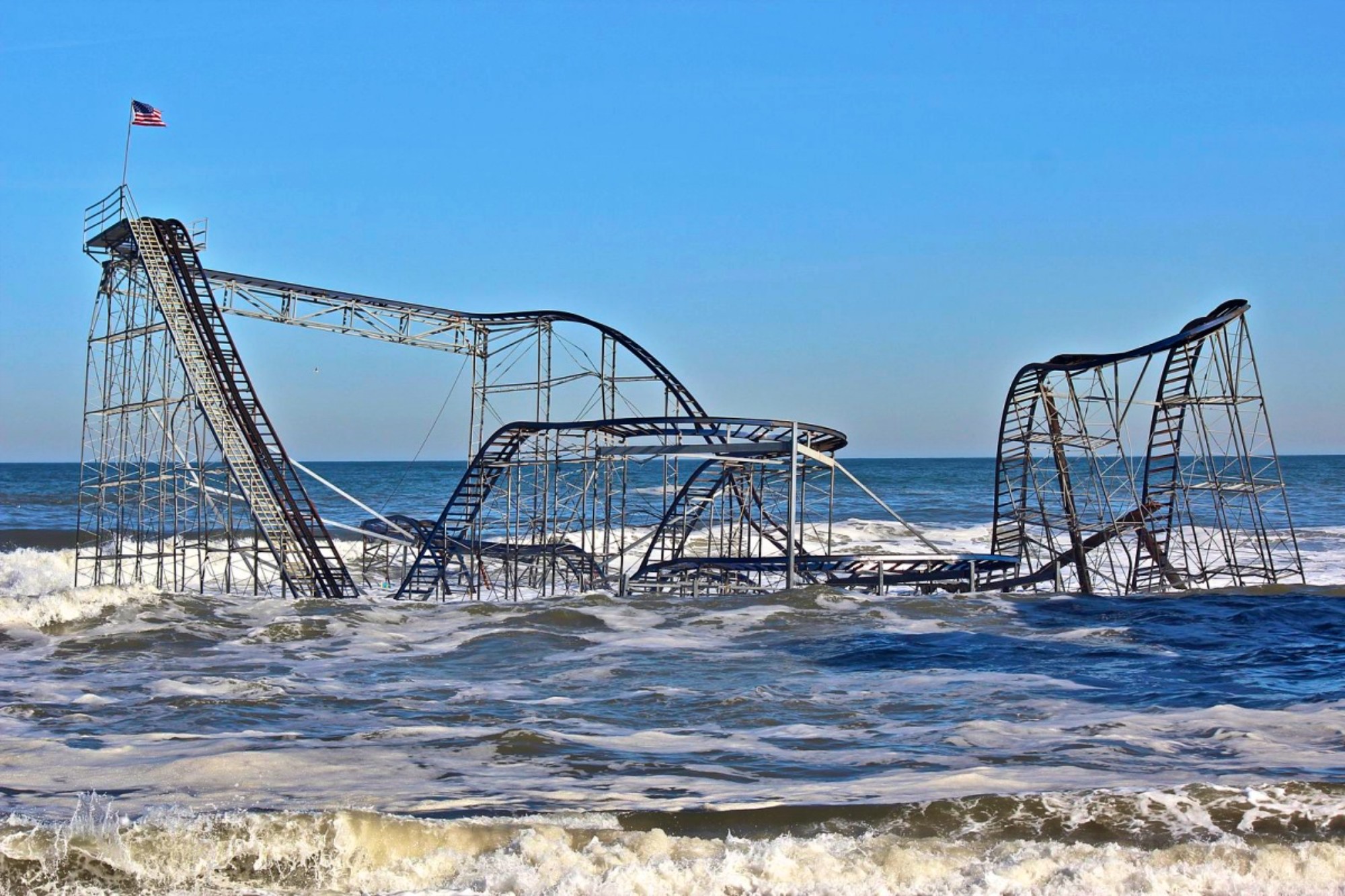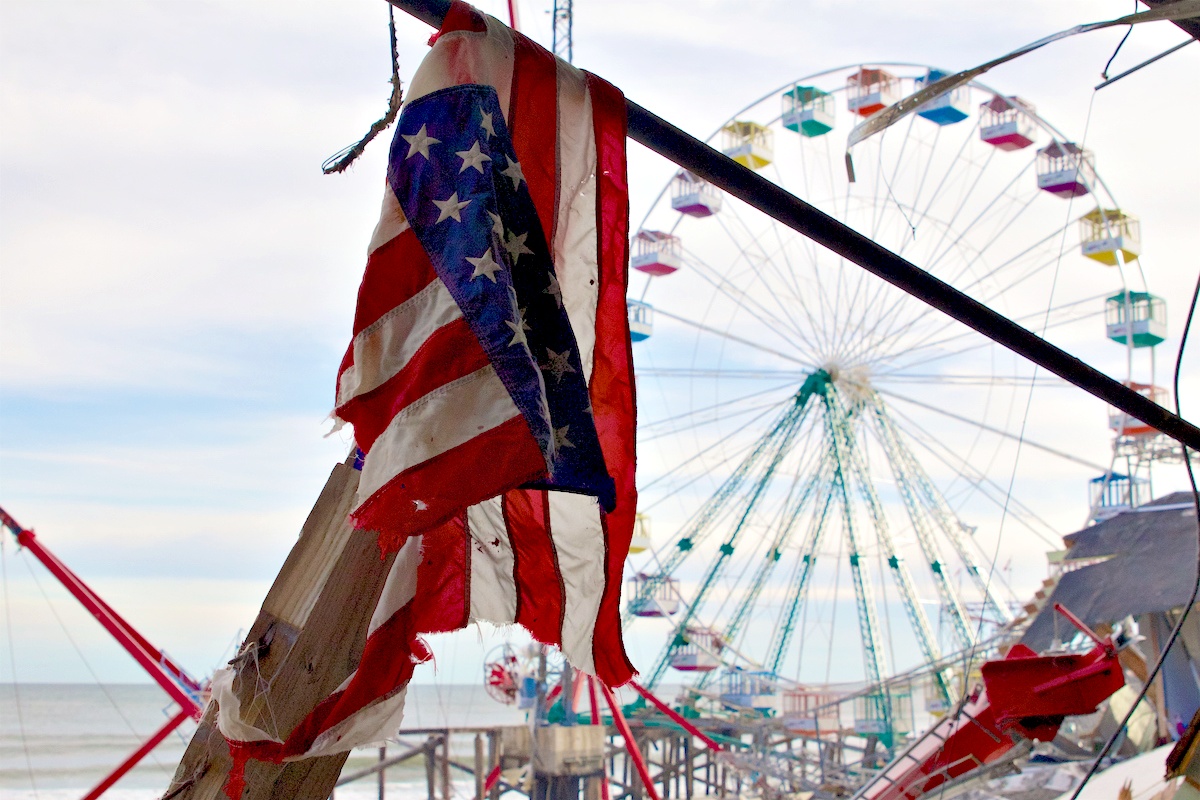When you’re moving through the wreckage after a hurricane, you’ll see people paddling canoes down the street — avoiding the river of gasoline-ridden water as best they can. You’ll hear about people inside, making do with non-perishable food and no power for days, awaiting news that the coast is clear and it’s safe to go out into your city again — though it might not feel like your city for a very long time.
Inflicting historical destruction on millions of people, Hurricane Sandy rocked the greater New York and New Jersey area 10 years ago on Oct. 29, 2012. The superstorm remains one of the most impactful natural disasters to hit the U.S., ultimately causing $71.4 billion in damage, stripping power from 8.5 million people, and leading to the deaths of nearly 300 between the U.S. and the Caribbean.
A visceral, challenging catalyst, Sandy led to pain sometimes likened to the region’s recovery after 9/11. But as tragedy so frequently reveals, people were ready to help — including first responders evacuating those who stayed, nurses protecting their patients when power cut the respirators, and everyday civilians providing shelter to those with none.
“During difficult times like this, we’re reminded that we’re bound together and we have to look out for each other,” President Barack Obama told the nation after the storm. “And a lot of the things that seem important, the petty differences melt away, and we focus on what binds us together and that we as Americans are going to stand with each other in their hour of need.”
Teachers College itself, nestled in upper Manhattan, avoided the brunt of the storm, but the disaster touched community members in varying degrees across the region — inspiring the Vice President’s Office for Diversity and Community Affairs to form TC Cares, a collaborative initiative that united multiple groups from across the College to centralize relief efforts.

The Queens Midtown Tunnel, flooded during the storm, opened to vehicles 10 days after the storm, but repairs lasted years. (Photo: Mark Valentin)
“Being in New York affords us many opportunities, and it's important for TC and its students to be an active part of New York's recovery,” said Vikash Reddy (Ph.D. ’16, Education Policy), who served as president of the Student Senate at the time.
Throughout their initial drive to support those in need after Sandy, TC Cares helped provide winter coats, diapers and school supplies to those in need.
Charitable efforts continued throughout the holiday season, as New York and surrounding cities embarked on a years-long journey to rebuild and heal. In addition to the fundraising efforts from TC Cares, Literacy Lifeboats — an initiative from the TC Reading and Writing Project — raised $60,000 to support schools affected by the storm.

The roller coaster and pier in Seaside Heights, New Jersey, submerged under water after facing waves as high as 24 feet. (Photo: Wikimedia Commons)
Meanwhile, TC alumna Regina Peruggi (Ed.D. ’90), then the president of Kingsborough Community College on Brighton Beach, sprung into action to support more than 2000 students located in the hardest hit areas. “We created a disbursement center, with food, clothing, diapers and other supplies,” Peruggi shared at the time. “When TC’s alumni office reached out to me after learning that we were hit pretty badly, I thought, well, what can another academic institution do for us?”
Teachers College would go on to have faculty, students and alumni provide in-person and online tutoring assistance in math and writing to Peruggi’s KCC students, and contribute necessities to the community college’s relief drive.
In the 10 years since Hurricane Sandy, coastal communities have cleared away the debris and rebuilt. But the storm’s mark on collective memory remains within reach; New York has spent $350 million on flood control devices intended to help minimize future damage, though experts argue whether or not the city is truly prepared for another storm of Sandy’s caliber.
That, and estimates that Lower Manhattan’s sea level will rise more than two-feet by 2050, are revitalizing calls for meaningful climate change action as the region marks the 10-year anniversary of the superstorm. Between vigils in the Rockaways and a conference hosted by Columbia Climate School, New Yorkers are preparing for the day when waters rise again.
[Learn more about TC’s role in developing climate change curriculum for NYC public schools, and TC doctoral student Joshua DeVincenzo’s international work on disaster preparedness training.]
